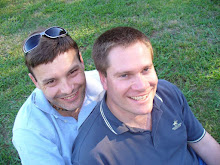 Neil Armstrong on the moon (NASA)
Neil Armstrong on the moon (NASA)This evening marked the 40th anniversary of the first manned moon landing. Shortly before 11pm, July 20, 1969 (3.00am in London on July 21) Neil Armstrong descended the ladder of his lunar module and stepped onto the moon’s surface. For the first time in human history a member of our species was standing on another celestial body. The world then watched in awe as Neil and his moonwalking companion, Buzz Aldrin, spent a further two and half hours bounding across the moon’s surface.
I was three years old at the time. I remember nothing of this momentous event, broadcast live to worldwide audience of half a billion people. However, almost two years later I recall watching live coverage of an Apollo splash down at a family friend’s home near Wellington, New Zealand. It took a bit of collective research with my Mum to identify which returning mission I'd witnessed. She recalls enjoying new season whitebait prior to the telecast. The whitebait season runs from early-August in New Zealand. Apollo 15 returned to Earth on August 7, 1971.
A year later, in December 1972, it was the turn of Apollo 17. This was the final mission of the Apollo era. At the time, few thought these final two astronauts would still be known as the last men to walk on the moon almost four decades later.


In the years since I’ve become a devoted fan of manned space exploration. I’ve visited the
Johnson Space Centre in Houston, the
Smithsonian Air & Space Museum on the Mall at Washington DC and numerous museums worldwide holding Apollo memorabilia. Regular readers will also recall Garry and I visited
Star City, home of the Russian space program, in 2006; then
Kennedy Space Centre in 2007, the second such visit for both of us. This year I returned to Kennedy to watch the
Space Shuttle launch into orbit. I've also touched moon rocks in three locations and a recovered Apollo capsule itself.

However, the Apollo missions of forty years ago still leaves me in awe. The majesty of the program’s towering Saturn V rocket was brought home to me earlier this year when I
visited Huntsville, Alabama. The city’s Rocket and Space Centre has a life-size mock-up of the rocket standing vigil. It’s a prominent landmark, looming across the skyline as you drove up the local Interstate Highway and visible from the air when departing the regional airport. It looks just powerful enough to carry brave men as far as the moon.
Forty years on the three Apollo 11 astronauts are back in Florida celebrating another anniversary of their achievement. However, it’s likely to be the last time they’ll be reunited. Neil is 78, Buzz is 79 and their moon orbiting colleague, Michael Collins, is 78. Within a few years the world’s first moonwalkers will be gone.
Their legacy will live on through devoted followers like me. Although I’m not sure I’ll ever be as passionate as a collector that paid $27,000 last week for a cheque signed by Neil Armstrong on the eve of the Apollo 11 mission. The cheque itself was for $10.50, made out to Harold Collins, a NASA manager, to repay money Collins had lent to the astronaut, to be cashed if the astronaut did not return from the Moon.



















